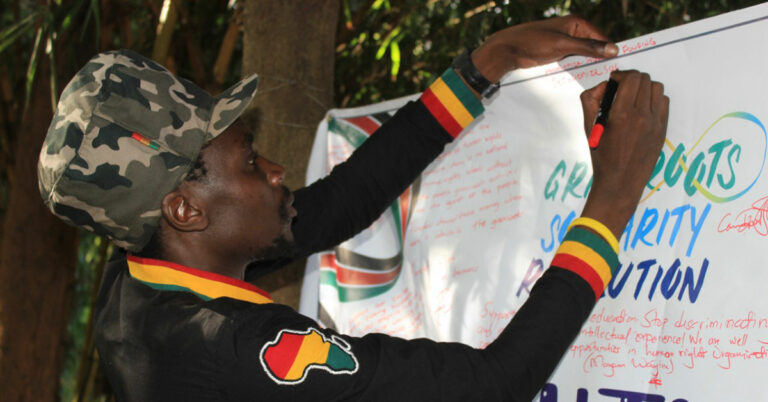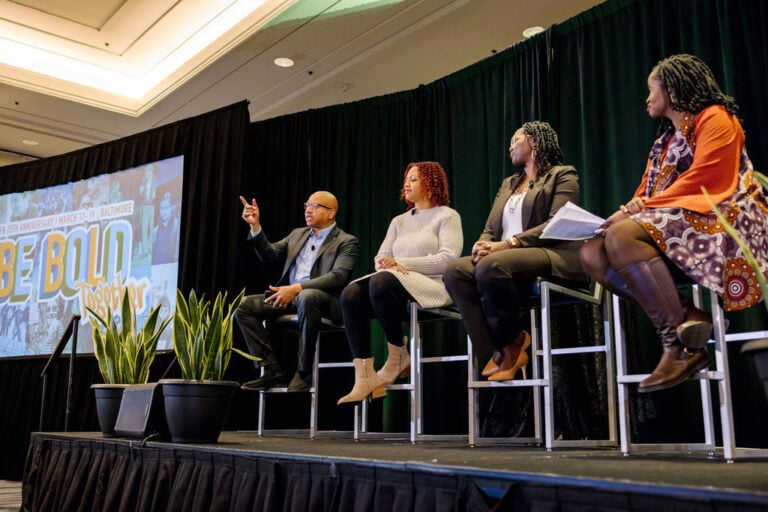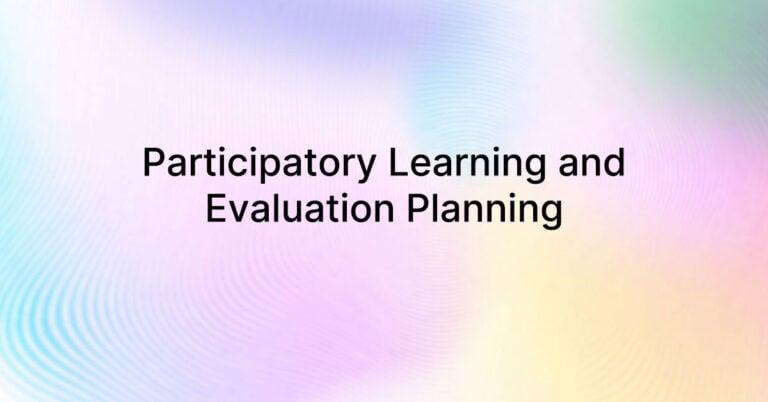As Fund for Shared Insight reframes its international efforts to focus on encouraging U.S.-based funders to support locally-led development practices around the world, we turned to Dr. Moses Isooba to learn more. Dr. Isooba, a thought leader in the localization movement, is the executive director of the Uganda National NGO Forum and a member of the Re-Imagining INGOs (RINGO) Social Lab, a systems change initiative to transform global civil society. (INGO stands for international non-governmental organizations.) Among his other roles, he serves as an advisory member of the panel on locally-led development at Bond UK, a network of organizations working in international development.
Dr. Isooba spoke and answered questions during a webinar we hosted in September 2023. He explained what localization is and is not, shared sayings that got to the heart of things, and pointed us to resources, including the lessons one international nonprofit took away from its work with local partners. The following are excerpts from that discussion with Dr. Isooba and his follow-up comments, with some material reordered and edited for length and clarity.
On why the global system of aid, or what Dr. Isooba calls “the INGO and aid industrial complex,” needs to change now:
The greatest catastrophe of our time is perhaps the erosion of multilateralism which was predicted in 1945 when the UN was being midwifed. This plus the degenerative economic model which controls the global trade and commerce and is rigged in favor of certain countries just makes it worse. Thus the need to do development differently.
When we look at the last 50 years or so, a lot of resources have been poured into the Global Majority to be able to develop. But despite the millions of dollars from foundations, donors, and INGOs, regrettably, the social indicators of many people have continued to remain depressingly poor. And therefore, it begs the question, what is it that’s not being done right? What localization requires is for donors to say, ‘We would like to do development differently.’
At the Uganda National NGO Forum, we place a high premium on the localization agenda, advocating for community-embedded leaders and groups to set the agenda and design and implement their own solutions in development, humanitarianism, and philanthropy.
“Let's not look at communities as being voiceless. Everyone has got a voice. The problem is that only a few of us have the mic.”
A good starting point for doing international development differently:
We need to make a conscious and deliberate move to go to partnerships, and here we’re talking about equitable partnerships where there is trust and appreciation for the fact that a funder-nonprofit relationship is not only about the money that is coming from the donors, but that the communities where development is undertaken, they too have resources and assets. These community assets include money, even if limited, and skills, local knowledge, local expertise, relationships, and networks. The more donors pay attention to these community assets, the more we are able to trigger community voice and community power and to look at communities not as beneficiaries, but as co-investors. The language really matters because when communities feel they are co-investors that alone brings a sense of civic agency. That alone brings a sense or creates a sense of civic consciousness and it redefines how development is seen: you stop doing development on the people, but you do development with the people.
True partnership is primed on a relationship of equals. It’s a relationship anchored on trust. It’s a relationship of shared results and outcomes, both negative and positive. Such a relationship is purposively nurtured and any downfalls quickly attended to so as to restore the relationship on its rails. By highlighting key values, roles, and pathways for change for a new development system, there are opportunities for reflection, inspiration, and motivation to do development differently. This is well outlined in a document I contributed to, called “Dreaming about partnership building.”
On the various terms — locally-led development, community-led development, localization, #ShiftThePower:

Women Collective Kenya hosts “jam sessions” for local activists to connect, explore, and collaborate. Photo courtesy of CIVICUS
Language and lexicon matters. As development practitioners, we need to understand and appreciate how our use of certain words and phrases — like poor countries, beneficiaries, and developing world — continue to mask an agenda of Western domination, or, put differently, reinforces a narrative of binaries of the rich and the poor, which in turn creates hierarchies. These terms establish a hierarchy in which the West is superior, the rest is inferior. Clearly this indicates a relationship between the dominant and dominated, and raises serious questions about the whole aid industry.
Whatever term one picks, what we’re actually looking for is development that appreciates and can actually deploy community assets and is based on local design and implementation. By and large, what we are saying is that the citizens or the communities need to be at the epicenter of any form of development. It’s time for the Majority World to touch the reset button.
What localization is not:
If any donor looks at localization as a quick way of cutting down transaction costs and says, ‘Look, we can deploy local leadership because they are going to be cheap,’ or ‘We’re going to do local design and implementation of projects because it’s going to be quicker,” then we are losing the spirit of localization. It’s also important to say that subcontracting is not localization. And we need to be careful and exercise an abundance of caution because sometimes by creating local intermediaries, we are simply moving from one power center and creating another power center.
If you want pancakes of a certain size, you have got to bake it yourself. If you want partners of a certain strength, you’ve got to help them grow.
A proverb to explain why it might take time for communities to trust funders that say they intend to shift power through localization efforts. (Read: “thief” as institutions that have long pursued extractive practices around the world.)
As we say here in Africa, it’s like when a thief steals your goat and then he comes in the morning to help you look for the goat.
Advice to funders who want to build trust:
I am inspired by the Dutch stock-phrase: Trust comes on foot but it departs on a horse. This simply means that the process of trust building is slow, but where there is trust, the trust can quickly evaporate if the parties do not remain truly wedded to the principles of equitable partnership.
To build these partnerships, you have to start with you being vulnerable. You need to be able to come into these relationships as a willing learner — willing to learn, willing to relearn, to unlearn, and willing to just be vulnerable and say, ‘Look, I want to make this work.’
One step in making it work:
Within foundations, you have to make sure that the program function is speaking to the audit function. A lot of this conversation about locally-led development is a conversation that is happening with the program people. And when you go to tell your finance colleagues, they look at everything using a risk lens. They need to be brought up to speed so they can stop seeing local organizations as risks, and instead see them as partners.
In response to a question about trying to reframe the conversation about risk:
If you, as a donor, look at the local organization as a financial risk, have you ever thought that the local organization could actually also look at you as a risk? How can they know you when they’ve never known your record of accountability? How can they trust that you’ll actually be able to have resources for the next 10 years? You need to provide room for the communities to begin asking some of these questions back to you. And you need to move from thinking of it as a risk transfer to risk sharing.
A Covid vaccine analogy for Dr. Isooba’s prescription for funders:
There is a paracetamol approach where donors develop tools and frameworks, measure this and measure that, and have webinars and all these kind of things. These are good things, but they are simply like paracetamol [also known as acetaminophen], just trying to put a bandage on the wound. So, I think if we really feel that localization is the way to go, then we need to take the vaccine approach. The vaccine approach has three doses. The first injection provides for direct funding, giving the money where it is supposed to be spent. Dose number two calls for unrestricted funding. The booster dose calls for multi-year funding. The three doses together would imply that we have inoculated development so it can grow as we want it to, locally-led.
Dr. Moses Isooba is Executive Director of the Uganda National NGO Forum (UNNGOF), a civil society platform for governance and democracy influencing in Uganda. He is a member of the Advisory Group on Locally Led Development for BOND UK, and was part of the core group of Bond’s “Futures Dialogues,” looking at the UK’s role in aid and development, and supporting a system-wide shift of how UK actors engage in international development.
Dr. Isooba is a member of Re-Imagining INGOs (RINGO) Social Lab (Rights CoLab), a group of development practitioners reimagining INGOs through disruption, innovation, and systematic thinking. Among its main aims is to get rid of colonial, racist, and pejorative jargon, idioms, and terminology used in the international aid complex and the development sector. RINGO is also working to shift power in the development industry by enabling people to use their local languages while communicating with INGOs and aid practitioners. Dr. Isooba describes himself as the “idea carrier” at RINGO when it comes to shifting the language and lexicon of international aid and development.





